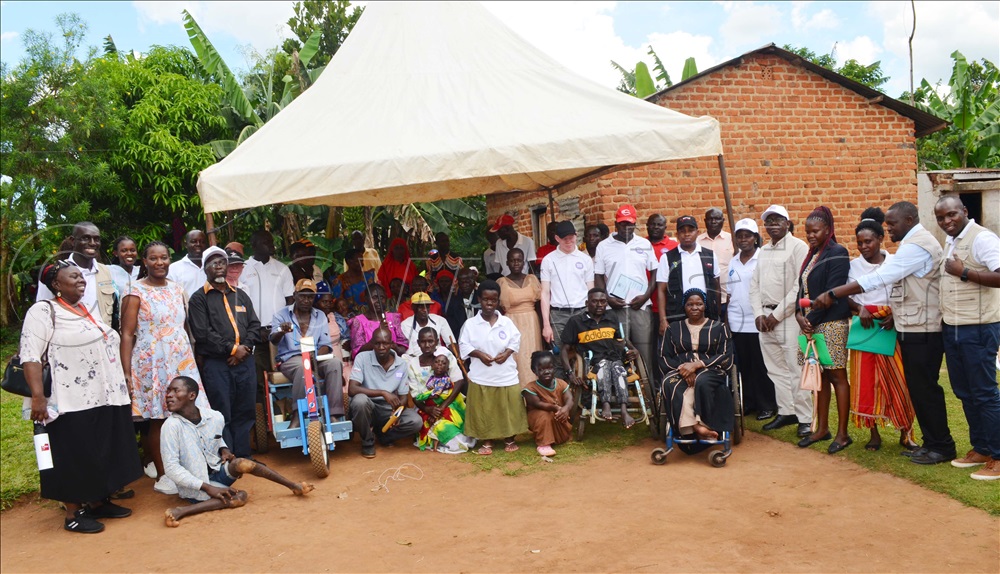By Violet Nabatanzi
Farming sessions through Participatory Learning have improved the livelihoods of People with Disabilities (PWDs).
Fagil Kyagira, a facilitator at Kyakuwa PLA-D group in Buwologoma village, Luuka district, said that through the Participatory Learning Action for Disability (PLA-D) project, PWDs have been able to save money and have started engaging in poultry farming, cultivating maize, among other activities.
The project is financed by the London School of Hygiene and Tropical Medicine (LSHTM) and implemented by the Medical Research Council (MRC), Amref Health Africa, Women and Children First (WCF), and the Ministry of Health, among others.
As part of this project, Amref provided groups with a seed fund of sh400, 000 to contribute towards their income-generating activities identified by each group. This aimed at increasing their savings and facilitating access to healthcare for PWDs.
Kyagira mentioned that before the project, PWDs used to isolate themselves in their homes due to fear of stigma.
“For example, albinos like us were targeted by witchdoctors who sought our hair and nails, claiming they could bring them wealth,” he explained.

He also noted that health workers in facilities were hesitant to treat PWDs, fearing they might become like them.
Speaking during a meeting with PWDs in Bukanga sub-county, Luuka district, , Dr Elizabeth Ekirapa, the Chair of Amref Health Africa–Uganda Advisory Council, appealed to PWDs fight for their rights and access services.
In Uganda, PWDs account for 12.4% of the population, largely due to the aging population and an increase in the prevalence of Non-Communicable Diseases (NCDs).
According to the Uganda Bureau of Statistics 2016, 4.5 million people live with some form of disability, with the majority residing in rural areas.
Moses Iyereget, project officer for PLA-D at Amref, stated that they are preparing for a full-scale trial and intend to work in approximately six sub-counties in Luuka district.
Abdul-Magid Menya, a social scientist at MRC in the disability research department, highlighted some of the barriers faced by PWDs, such as limited knowledge on healthcare and the attitudes of health workers in treating PWDs.
He emphasized that bringing PWDs together in PLA-D groups improves access to healthcare, as these groups sensitize people on health issues and discuss solutions to health problems.
LEAD PHOTO CAPTION: Some of the members of Amref Health Africa–Uganda Advisory Council observing some of the chicken reared by People with Disabilities.





